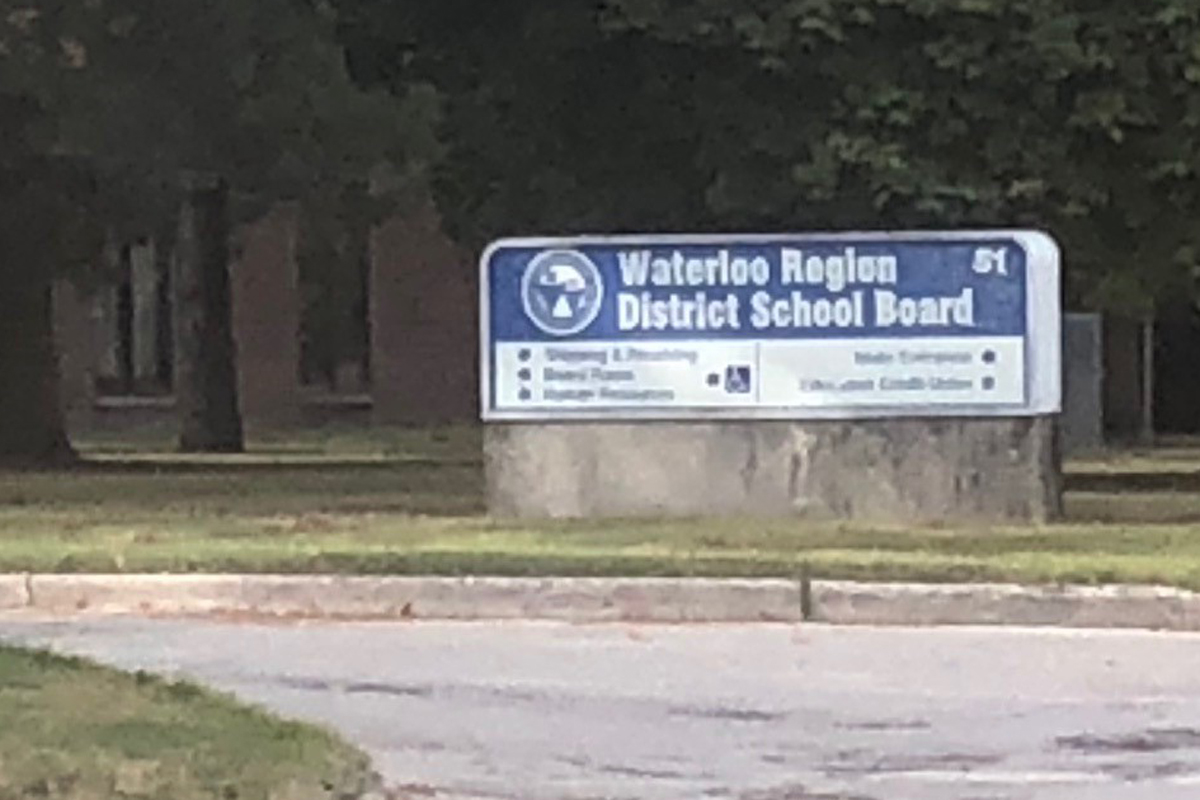The Waterloo Regional District School Board has released the results of its first-ever student census, which surveyed parents and students on a range of topics.

The voluntary survey, which was conducted back in April 2021, asked students to share information on their ethnic/cultural background, their racial and gender identity, and whether they identify with a health or disability condition, among other topics.
The board says about 30,000 people (about 50 per cent of those eligible) responded to the provincially mandated survey, which the WRDSB‘s director of education says will allow the board to better support their students.
“It is important that we know the identities and experiences of the students we serve, so that we can be more precise in the ways we support them,” said jeewan chanicka, director of education.
“The census data will be instrumental in helping us address differences and gaps in the system to ensure that any student’s identity does not predict their outcome.”

Get breaking National news
The voluntary survey which asked for input from parents of students in kindergarten in Grade 3, also asked them about their socioeconomic status.
Students from Grades 7 to 12 being asked about their sexual orientation.
- ‘Alarming trend’ of more international students claiming asylum: minister
- TD Bank moves to seize home of Russian-Canadian jailed for smuggling tech to Kremlin
- Why B.C. election could serve as a ‘trial run’ for next federal campaign
- Canadian government’s satellite deal has Tories calling for Elon Musk involvement
The board says that close to 24 per cent of students in Grades 7 to 12 who took part in the survey self-identified with at least one 2SLGBTQIA+ sexual orientation while more than four per cent of students Grades 4 to 12 self-identified with a 2SLGBTQIA+ gender.
The WRDSB says that the survey found that about a third of its students are racialized while around seven per cent identified as having more than one or a mixed-race identity.
The region appears to be truly multicultural as there were more than 200 languages identified by students as their first language, including five Indigenous first languages.
The board says that three per cent of participants identified as Indigenous, representing 66 Nations, communities and identities.
Around 40 per cent of students in the board are agnostic, atheist or have no religious or spiritual affiliation while Christian and Islam are the most common religions among students.
The survey also asked whether students are eating healthy or skipping meals and whether they are receiving help at home from parents with schoolwork.
Around six per cent of students said they rarely or ever eat healthy meals, while seven per cent said they were not getting enough help with homework.
The school board says it will provide more detailed information from the survey to school administrators so they can better serve their students.








Comments